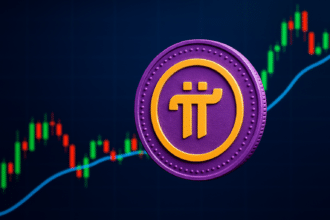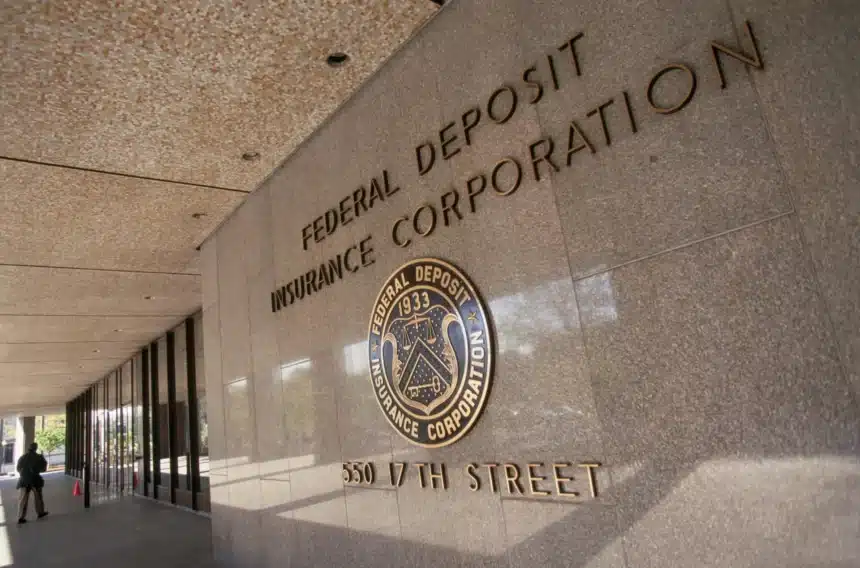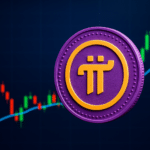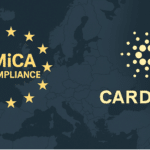The cryptocurrency arena in the United States might be on the brink of a significant transformation. Analysts suggest that the proposed new leadership at the Federal Deposit Insurance Corporation (FDIC) might foster enhanced interactions between US financial institutions and digital asset companies. This anticipated change is expected to bolster the growth and adoption of cryptocurrencies significantly, potentially reshaping the financial sector in the coming years.
A New Era as New FDIC Leadership Comes On Board
The Federal Deposit Insurance Corporation (FDIC) has been a cornerstone of financial stability in the United States since its inception in 1933. Traditionally focused on protecting depositors and maintaining public confidence in the nation’s financial system, the FDIC’s role is expanding in response to the growing influence of digital assets. With new leadership at the helm, there is a palpable optimism that the FDIC will foster a more collaborative relationship with the crypto industry.
Bridging the Gap Between Banks and Crypto
One of the FDIC’s primary responsibilities is overseeing and regulating banks to ensure their stability and solvency. Historically, the relationship between traditional banks and the crypto sector has been challenging. Concerns over regulatory compliance, security, and volatility have made banks wary of engaging with digital asset companies. However, the new FDIC leadership could pave the way for a more harmonious relationship.
Analysts believe that this change in leadership at the FDIC could create a more conducive environment for banks to interact with crypto companies. They add that it could bring about increased adoption of cryptocurrencies and more robust regulatory frameworks that protect both consumers and institutions.
Potential Benefits for the Crypto Industry
Improved bank-crypto interactions under new FDIC leadership could have several significant benefits for the cryptocurrency industry:
- Enhanced Legitimacy: Greater cooperation with regulated financial institutions can lend credibility to the crypto sector, attracting more mainstream investors and users.
- Increased Adoption: Easier access to banking services for crypto companies can streamline operations, making it simpler for consumers to buy, sell, and store digital assets.
- Regulatory Clarity: Clearer guidelines and a more supportive regulatory environment can reduce uncertainty, encouraging innovation and investment in the crypto space.
- Security and Stability: Collaboration between banks and crypto companies can lead to better security measures and more stable financial systems, benefiting all parties involved.

The Crypto Community’s Response
Many in the crypto community have enthusiastically welcomed the prospect of improved interactions between banks and the crypto industry. Bitcoin Cash (BCH), Bitcoin (BTC), and Ethereum (ETH) enthusiasts see this as a positive development that could drive broader acceptance of digital currencies.
Despite the optimism, there are still challenges to be addressed. The crypto industry is known for its rapid innovation and sometimes disruptive nature, which can be at odds with traditional banks’ more cautious and regulated approach. It will be crucial for the new FDIC leadership to strike a balance between fostering innovation and ensuring regulatory compliance.
“There is always a risk that increased regulation could stifle innovation,” warns blockchain expert Sarah Johnson. “However, if done correctly, it can provide a stable foundation upon which the crypto industry can build and thrive.”
The Road to Regulatory Harmony
Achieving a harmonious relationship between banks and the crypto industry will require a concerted effort from all stakeholders. The new FDIC leadership must engage in open dialogue with financial institutions and crypto companies to understand their unique needs and challenges.
One potential avenue for collaboration is the development of standardised guidelines and best practices for banks interacting with digital asset companies. This could include clear definitions of compliance requirements, security protocols, and risk management strategies.
The appointment of new FDIC leadership represents a significant opportunity for the crypto industry. By fostering improved interactions between banks and digital asset companies, the FDIC can play a pivotal role in the continued growth and adoption of cryptocurrencies.
As the financial landscape evolves, the FDIC’s ability to adapt and embrace new technologies will be crucial. The crypto community will be watching closely to see how this new leadership shapes the future of bank-crypto interactions.
The Final Take
The potential for improved interactions between banks and the crypto industry under the new FDIC leadership is promising. With the right balance of regulation and innovation, this could lead to greater legitimacy, adoption, and stability for digital assets. As we look to the future, the collaboration between these two sectors could redefine the financial landscape and unlock new opportunities for growth and investment. The BIT Journal has more crypto updates.






















Thank you for sharing such insightful updates about the crypto market